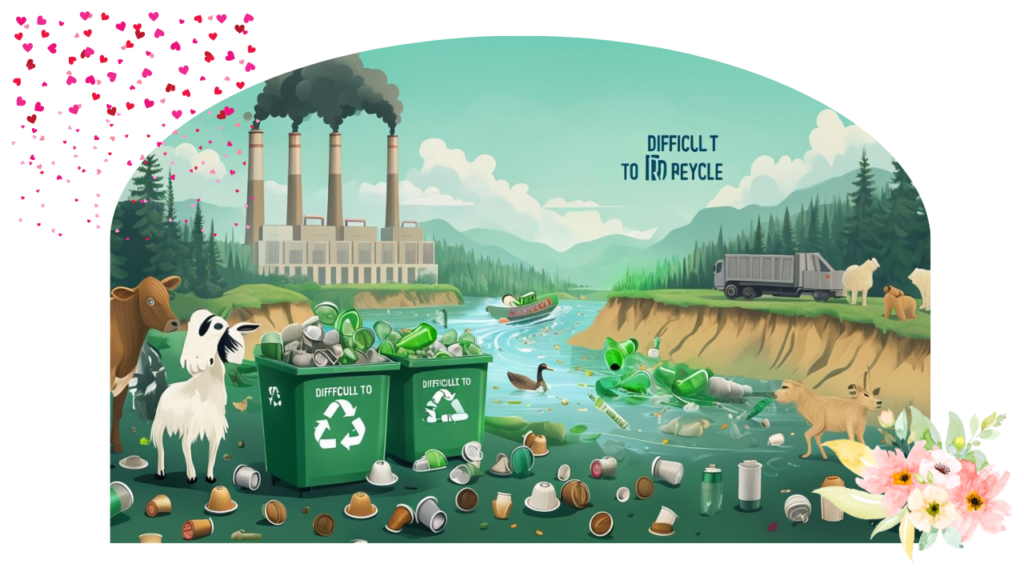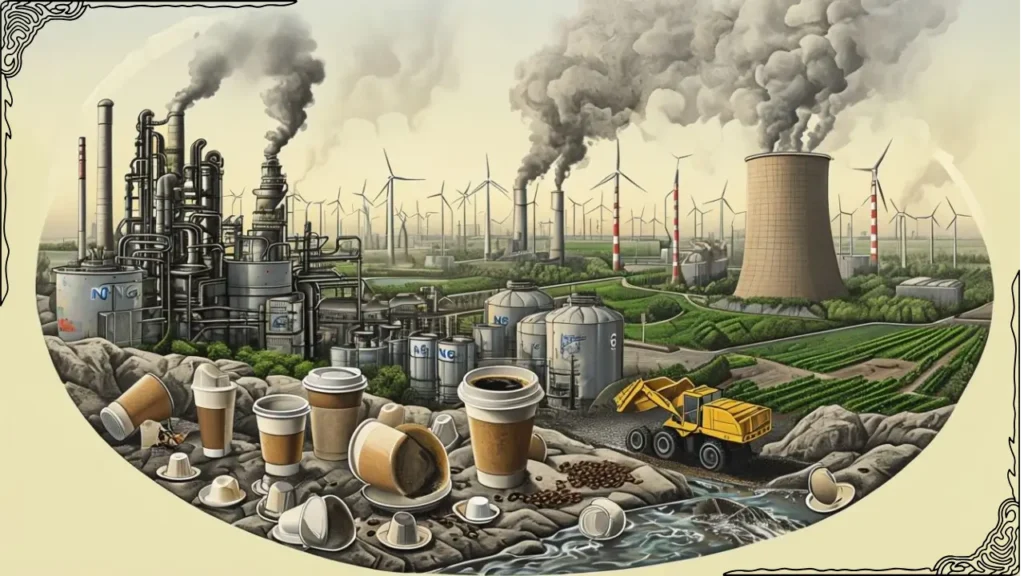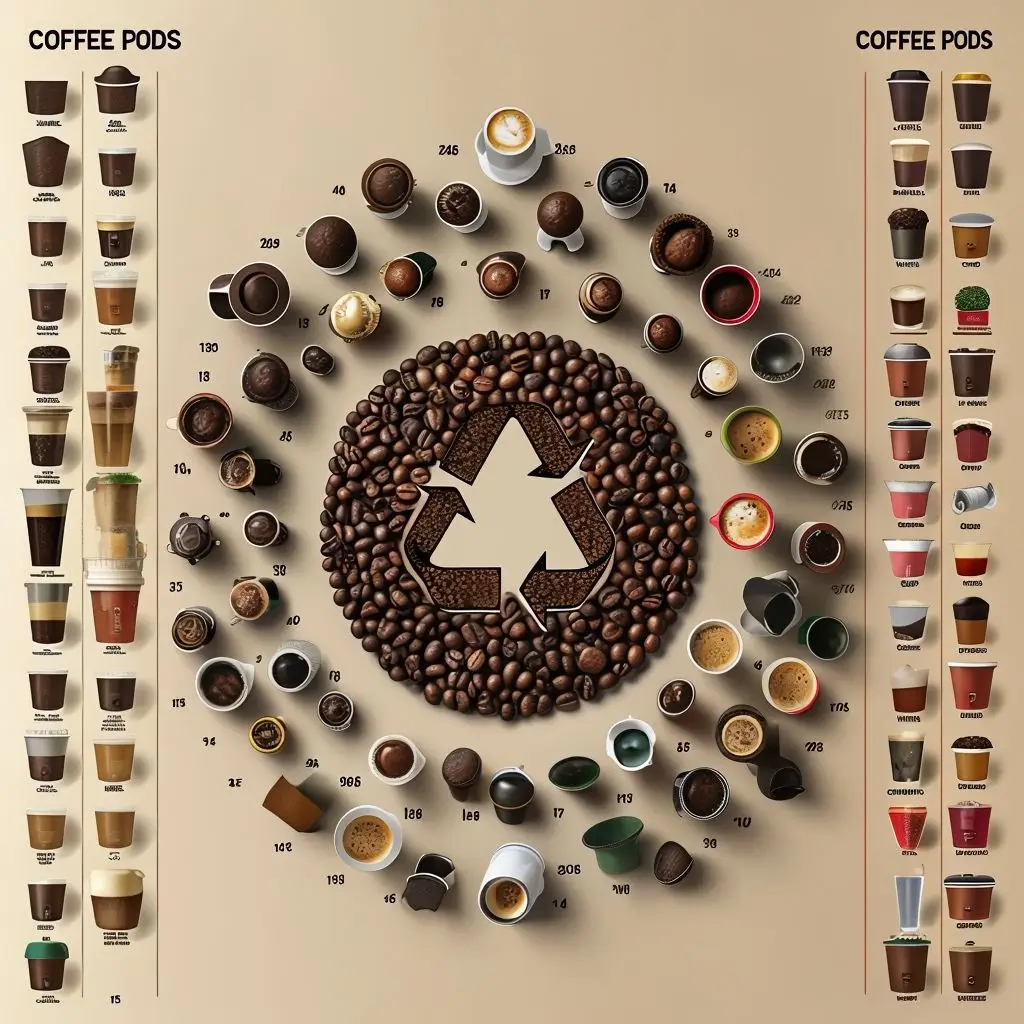Why are Coffee Pods Bad for the Planet and Environment?
Do you the most important thing about coffee pods, Why are coffee pods bad for the planet and Environment? Coffee pods, those tiny single-use containers that have made coffee in coffee pod holder consumption experience simple is now a common display in many offices and homes.
They are a quick and easy method to make the perfect cup of coffee. They come in a variety flavors. But have you taken the time to consider the impact these tiny pods have on the planet? We will discuss all about this in my article. Please read on.

Why are coffee pods bad for the planet?

Coffee pods, sometimes referred to as K-cups were first introduced in the 1990s. They have since increased in popularity due to their ease of use and variety. But the convenience comes at a the environmental costs of a large amount.
The Manufacturing Process

The coffee pods are comprised of aluminum, plastic, as well as organic materials (the the coffee). The process of making these materials requires a lot of resources. For example the process of creating plastic requires the extraction and refining of oil, which results in pollution of the air and water. Similar to the process of producing aluminum consumes a lot of energy, resulting in substantial emission of greenhouse gases.
The Disposal Dilemma

The problem is more serious when the coffee is prepared. The majority of coffee pods aren’t biodegradable or recyclable. That means after a single use, they will end in the garbage in which they could be a long time to degrade. In reality, it’s estimated that the quantity of coffee pods that are discarded could travel around the world several times.
Impact on Wildlife

The removal of coffee pods not just cause the issue of garbage, but also pose a risk to wildlife. Animals may mistake tiny pieces of aluminum or plastic as food and cause dangerous blockages in their digestive tracts.
The Carbon Footprint

Coffee pods’ carbon footprint is considerably greater than traditional methods of brewing. This is because of the energy that is used to produce them and the carbon emissions resulting that result from their disposal, as well as the transport of the pods.
Excessive Plastic Waste

The coffee pods are typically composed of plastic materials that are difficult to biodegrade. After being disposed of, these pods are a major source of garbage. Each year, billions of coffee pods are discarded and cause a huge environmental problem that requires many years for them to decay.
Resource-Intensive Production

The process of making coffee pods takes a lot of resources which include energy, water as well as raw material. The process requires energy-intensive processes that contribute the emission of carbon. The environmental impact of manufacturing the items for single use is significant and raises concerns regarding sustainability.
Difficulty in Recycling

Though certain coffee pods are advertised as recyclable, many consumers aren’t aware of how best to recycle them. Many pods don’t qualify for regular recycling programs and therefore end up in the garbage. Even when recycling is feasible, it often requires careful separation and cleanup that most don’t do themselves.
Impact on Wildlife and Ecosystems

Plastic pollution poses an increasing threat to wildlife and natural environments, endangering wildlife as well as ecosystems. Animals may ingest plastic or become entangled in it, leading to injury or even death for some creatures. Coffee pods play an integral part in contributing to global plastic pollution threatening biodiversity and natural habitats.
Chemical Concerns

Some coffee pods are constructed from materials which may contain potentially dangerous chemical compounds. When heated during brewing, this toxins could leech into the final coffee drink resulting in long term exposure of these chemicals to its consumer resulting in serious safety concerns surrounding using coffee brewed with these pods.
Are There Any Solutions to the Coffee Pod Problem?
Yes, there are solutions available to address the coffee pod crisis. Companies have started manufacturing recyclable or compostable pods; these require specific conditions for breakdown; not all recycling facilities accept these pods.

Are Coffee Pods Bad for You?
Coffee contained within pods isn’t harmful in itself; indeed, moderate consumption may provide many health advantages. But the problem lies with their ingredients; most pods are made of aluminum and plastic which take decades to biodegrade causing pollution that affects our health and the environment negatively.

Are Coffee Pods Causing Cancer?
There is no conclusive evidence directly linking coffee pods with cancer; however, some studies have raised concerns over potential chemicals being released when heated from aluminum or plastic used to make pods used to make coffee pods. While these studies don’t prove anything definitively either way, more research needs to be conducted in order to understand any health risks posed by coffee pods.

Are All Coffee Pods the Same Sizes?
Coffee pods come in various dimensions depending on their brand and coffee machine of choice, yet regardless of size they all pose environmental pollution due to being non-biodegradable.

Are coffee pods environmentally-friendly?
Coffee pods typically aren’t made of eco-friendly materials like paper or cardboard; most are often composed of aluminum and plastic, neither of which biodegrade naturally in nature, taking years to break down in landfills resulting in waste and pollution.

Are Coffee Pods Healthy?
Consumption of the coffee contained within pods can be beneficial to our health if consumed in moderation; however, their environmental impacts could cause adverse health impacts such as increased pollutant and waste accumulation resulting in respiratory ailments or various illnesses that could require hospitalization.

Conclusion
In short, though coffee pods offer convenience and versatility, it is vitally important to consider their impact on the environment. Non biodegradable materials contribute significantly to pollution and waste; we as consumers can take action by choosing more sustainable brewing methods like reused pods or traditional techniques – every effort counts toward protecting our planet!
By being aware of how our choices impact the planet, it becomes possible to make more conscious choices and contribute towards an environmentally sustainable future. Before ordering that next cup of coffee, think carefully about its environmental impact as well as potential eco-friendly alternatives you could switch for instead.

